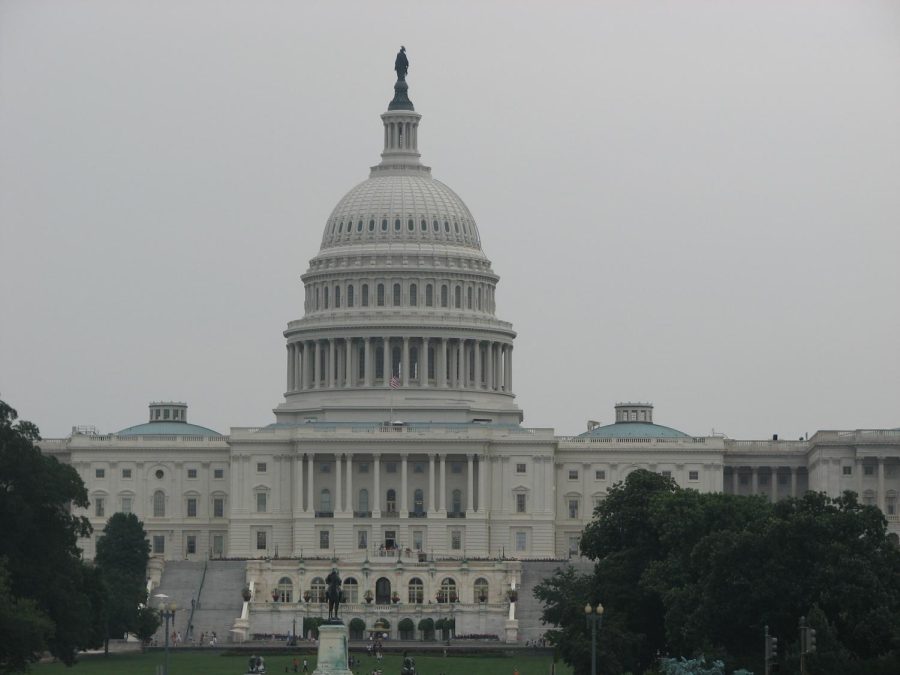House Speaker deadlock: possible sign of what’s to come in Congress
February 3, 2023
Last November, the American people voted and returned one of the more mysterious midterm election results seen in recent history.
Midterm elections are usually an opportunity for voters to punish the incumbent party in the White House midway through a president’s four-year term, but these results, in fact, point to all different sorts of narratives.
Democrats had more success than expected based on polling and historical precedent. Nationwide, Democrats gained governorships and seats in the Senate, achieved full control over governments in several key Midwestern states, and minimized their losses in the House.
Meanwhile, Republicans experienced a pretty universally disappointing night, with an obvious caveat to this being their eventual narrow takeover of the House of Representatives.
Colleen Roche teaches AP US History for juniors and Political Science for seniors. “Traditionally, the president’s party loses a lot of seats in the midterm elections…so I think [the results] were a shock for the Republican Party ,” Roche said.
Indeed, an incumbent party having such success in a midterm is rare, and the slim Republican majority in the House is left in a somewhat weak position. “Not only do I not think it’s a mandate, I think the Republicans have come to understand it’s not a mandate either,” Roche continued.
Another nebulous aspect of this whole situation is that, out of the whole country, New York was one of the only places to experience what could be called a “red wave”. Much of the Hudson Valley now has a Republican congressman, Mike Lawler, for the first time in at least a decade. Plenty of locals may wonder what will change in terms of how we’re represented in Congress.
Alumnus Clyde Lederman is currently a freshman at Cornell University who has previously lived in Rockland County his whole life and has been heavily involved in local politics. “The obvious reverberations are what should have been a Democratic Congress is now a Republican Congress,” Lederman said. A handful of GOP pickups in New York helped secure the GOP’s small majority. “As a result, there will be less money for New York State,” Lederman continued, citing concerns the congressional Republicans will give less funding to local projects.
Because their path to the House majority was so unexpectedly tight, Republican leadership has recently found that a few right-wing mavericks have the power to hold a broader conservative agenda hostage.
Representative Kevin McCarthy of California has been the GOP’s House leader since 2019, and has long been primed as a future speaker. Several Republican members of the far-right House Freedom Caucus have indicated since late 2022 that they would object to McCarthy’s bid for the speakership, and on Jan 3 2023 they more than kept their promise.
Altogether, around 20 GOP representatives voted for protest candidates against McCarthy, raising unprecedented intra-party conflict. The fifteen rounds of voting before the speaker was elected was the most since 1855. However, after fourteen unsuccessful speaker ballots, enough Freedom Caucus members felt their concerns had been heard by GOP leadership and Kevin McCarthy was elected Speaker of the House on the fifteenth ballot.
Amid all the chaos, there are several key questions that need to be answered. Among them is how exactly republicans arrived at such a desperate and drawn-out position even as the ostensible victors of the House races.
“I think we’re in really uncharted waters. The speaker hasn’t been a controversial post because of the fact that, you know, if you’re the majority party, you agree to put forth a candidate. That candidate should win unless your own party’s voting against that candidate, which is, of course, what happened to McCarthy. Why doesn’t that happen more often? Typically, it hasn’t happened more often because parties have been relatively cohesive,” Roche said.
In general, standard congressional proceedings will change as well under Republican leadership. The Rules Committee in particular could become a crucial change in the coming House session. “The Rules Committee is the most powerful in Congress. Any bill can effectively be rewritten by Rules and the Freedom Caucus’s new rules say any spending increases also need to have similar spending cuts and be standalone bills, omnibus bills that are often used to get through months of passed legislation are banned,” Lederman continued.
All in all, the American people can expect to see changes to the way Congress is run and what bills are brought forward for votes. Any bills passed by the GOP-majority House would also have to pass the Democrat-majority Senate and be signed by President Biden, and so more division and gridlock is a likely possibility in the coming years. With the speakership acquired, Kevin McCarthy will be presiding over a party that is giving fragile support to him for now, and many of us in the Hudson Valley will have a congressman who’s a Republican rather than Democrat for the first time in many years. In terms of analysis of what this new House dynamic will cause – “I have learned not to make too many predictions about politics,” Roche said.




























